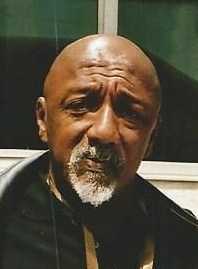Paulo Cézar Caju
 | |||
| Personal information | |||
|---|---|---|---|
| Full name | Paulo Cézar Lima | ||
| Date of birth | 16 June 1949 | ||
| Place of birth | Rio de Janeiro, Brazil | ||
| Playing position | Attacking Midfielder | ||
| Senior career* | |||
| Years | Team | Apps† | (Gls)† |
| 1967–1972 | Botafogo | ||
| 1972–1974 | Flamengo | 40 | (6) |
| 1974–1975 | Marseille | 31 | (16) |
| 1975–1977 | Fluminense | 39 | (11) |
| 1977–1978 | Botafogo | 28 | (4) |
| 1978–1979 | Grêmio | 5 | (1) |
| 1980 | Vasco da Gama | ||
| 1981 | Corinthians | ||
| 1981 | California Surf[1] | 18 | (4) |
| 1982–1983 | Aix | 21 | (3) |
| 1983 | Grêmio | ||
| National team | |||
| 1967–1977 | Brazil | 57 | (10) |
| * Senior club appearances and goals counted for the domestic league only. † Appearances (Goals). | |||
Paulo Cézar Lima (born 16 June 1949 in Rio de Janeiro), commonly known as Caju, is a former football player from Brazil. He played as a midfielder or forward for many teams in Brazil and also played one year for Olympique de Marseille, a Ligue 1 team in France.
Career
Caju was most widely known as a member of the Brazilian national team in the World Cup in 1970 and in 1974. With the Brazilian national team he collected 57 caps and 10 goals.[2] This recognition, in an era dominated by Pelé, Tostao, Rivelino and Jairzinho, is impressive. In fact, he featured heavily in the national team throughout very successful years.
Caju began his career with Botafogo de Futebol e Regatas, where his team won the Campeonato Carioca (championship of the state of Rio de Janeiro) several times and many more trophies in the end became one of Botafogo de Futebol e Regatass all time greatest and most honoured players.
Caju featured in the Brazilian Bola de Ouro team of the season in Brazil in the seasons 1970, 1972, 1976, 1977.
In the 1990s,[3] Paulo César Lima was the subject of a documentary film by João Moreira Salles[4] The documentary depicts his flamboyance on and off the field during his days as a football player, and the difficult adjustments he had to make afterwards, outside of the limelight, and surviving on his income as a landlord.[3][5][6]
Clubs
- 1966-1967 Atletico Junior de Barranquilla-Colombia
- 1967–1972
 Botafogo de Futebol e Regatas
Botafogo de Futebol e Regatas - 1972–1974
 Clube de Regatas do Flamengo
Clube de Regatas do Flamengo - 1974–1975
 Olympique de Marseille
Olympique de Marseille - 1975–1977
 Fluminense Football Club
Fluminense Football Club - 1977–1978
 Botafogo de Futebol e Regatas
Botafogo de Futebol e Regatas - 1978–1979
 Grêmio Foot-Ball Porto Alegrense
Grêmio Foot-Ball Porto Alegrense - 1980
 Club de Regatas Vasco da Gama
Club de Regatas Vasco da Gama - 1981
 Sport Club Corinthians Paulista
Sport Club Corinthians Paulista - 1982–1983
 AS Aix
AS Aix - 1983
 Grêmio Foot-Ball Porto Alegrense[7]
Grêmio Foot-Ball Porto Alegrense[7]
Honours
- 1 x 1970 World Cup: Winners medal
- 6 x Rio State Championship: Winners medals
- 1 x Taça Brasil- Campeonato Brasileiro 1968: Winner medal with Botafogo
- 1 x Rio Grande do Sul State Championship 1979: Winner medal with Grêmio
- 1 x World Club Championship 1983: Winner medal with Grêmio
- 2 x Guanabara Cup: Winners medals in 1967 and 1968 with Botafogo
- 1 x Roca Cup: Winners medal in 1971 with Botafogo
- 1 x Brazil Independ Day's Cup: Winners medal in 1972 with Botafogo
- 1 x Mexico City's Tournament: Winners medal in 1968 with Botafogo
- 1 x Verão Tournament: Winners medal in 1972 with Botafogo
- 1 x Viña Del Mar Cup: Winners medal in 1976 with Botafogo
- 1 x Paris Tournament: Winners medal in 1976 with Botafogo
- 1 x Colombino Huelva Tournament: Winners medal in 1980 with Vasco de Gama
Personal titles
- Brazilian Bola de Prata (Placar): 1970, 1972, 1976, 1977
- Rio state league's top scorer: 1971
References and footnotes
- ↑ "North American Soccer League Players". Nasljerseys.com. 16 June 1949. Retrieved 8 June 2011.
- ↑ "Paulo César Caju – Paulo César Lima – Sambafoot.com, all About Brazilian Football". En.sambafoot.com. Retrieved 8 June 2011.
- ↑ 3.0 3.1 "Futebol". DVD Times. 31 May 2006. Retrieved 8 June 2011.
- ↑ One of three soccer-related documentaries released in 2006 in a boxed set called Futebol.
- ↑ Football: Best view ever of the beautiful game | Independent on Sunday, The | Find Articles at BNET.com
- ↑ "Madman Sports – Futebol". Madman.com.au. Retrieved 8 June 2011.
- ↑ "weltfussball". Weltfussball.de. 16 June 1949. Retrieved 8 June 2011.
| ||||||||